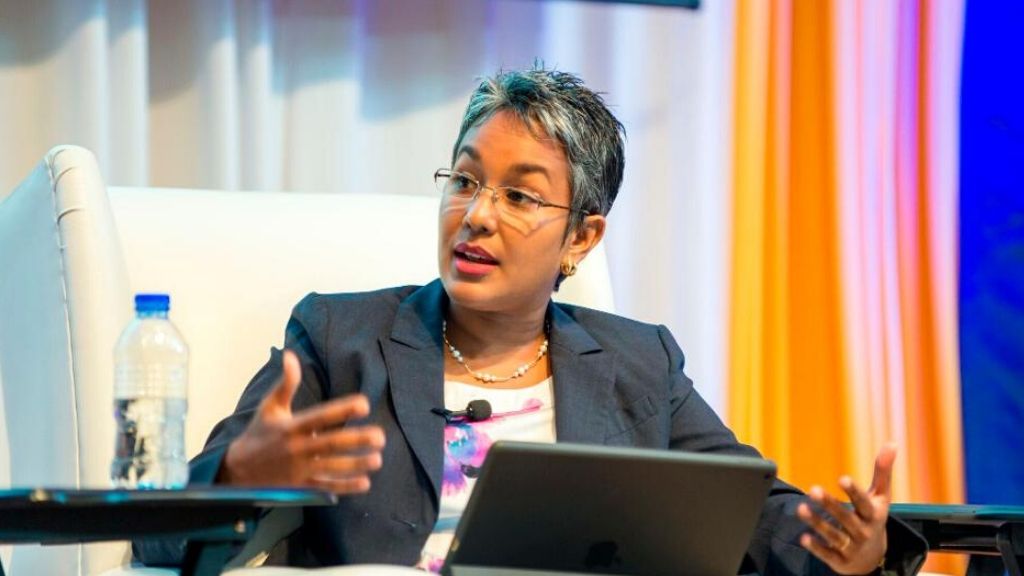Barbadians are being put on notice not to expect any ease in the cost of living in the new year despite some improvement in inflationary pressures.
This caution has come from noted regional economist Marla Dukharan, who also suggested that tourism-dependent economies should taper their optimism in light of several external factors that continue to impact the cost of living in key source markets.
In addition, the regional advisor on Caribbean economies expressed concern about very little improvements in domestic conditions to drive sustainable growth and slow movement on a range of matters of importance.
Dukharan pointed out: “Inflation is still elevated but is easing across the Caribbean as well, and this is likely to accelerate next year, as the year over year change in prices decreases. The cost of living however, is not likely to decrease. I can’t remember this ever happening. Certain food items may see fluctuations but in general, the overall cost of living does not come back down. So we should expect much of the same into next year.”
Her assessment comes exactly a month before the six-month social compact between Government and the private sector to cap prices on 47 items, comes to an end.
Dukharan told Barbados TODAY the global economy has slowed significantly already this year and the International Monetary Fund (IMF) has predicted it will enter a recession next year. She explained that with some of Barbados’ main trading partners and tourism source markets already experiencing fiscal and monetary pressures, there will be spillover effects.
“In 2020/2021 we saw unprecedented fiscal and monetary stimulus globally, to ease the pressures of the pandemic. At the beginning of this year, interest rates were near zero. Then from the first half of this year till now, there has been unprecedented monetary tightening – higher interest rates and tighter liquidity – all in effort to address the inflation which resulted primarily from Russia’s invasion of Ukraine on February 24.
“The US, UK and Europe have, by design therefore, slowed down significantly, with some countries already contracting and in recession, such as the UK,” she explained.
“Remember that higher interest rates are intended to do this – slow down economic activity and job creation – so that lower consumption will put downward pressure on prices and therefore inflation will come down. And inflationary pressures have in fact been easing in the US, UK and to a lesser extent Europe, whose energy prices in particular, remain quite elevated,” said Dukharan.
She suggested that the island’s bread and butter tourism industry could still face some headwinds, with recovery slower than anticipated. Against this background, the economist recommended that necessary changes are urgently made to ensure an improvement in the business climate.
“I think tourism numbers and overall economic activity are likely to be softer next year than we would ordinarily expect, given the engineered slowdown in the US, UK and European economies,” said Dukharan.
“Beyond the external factors, I am not seeing any significant improvement in domestic conditions/activities to drive longer-term growth. For example, the ease and cost of doing business remain a major concern. The incomplete or delayed road rehabilitation projects, and the fact that corporate entities are taxed much less than individuals, to me, all disincentivize investment and productivity,” she added.
She further explained that Barbados being on the anti-money laundering/Countering the financing of terrorism (AML/CFT) blacklists presents challenges for this country.
“It would be good to hear from the authorities what efforts are being made to address this, as it places unnecessary burdens, costs, and therefore disincentives to trade and investment activity, and affects everyone,” she said.
She also pointed to the need for swift reform of the island’s pension scheme and a ramping up of productivity across the labour force.
“The underfunded National Insurance Scheme (NIS) issue remains unresolved as far as I am aware, and this could end up placing pressure on the central Government and all taxpayers if not addressed swiftly and meaningfully. I think it also acts as a disincentive to NIS contributors to be compliant.
“Finally, I am not aware that anything is being done to address the weak productivity in both the private and public sectors in Barbados. The Government and private sector must invest in digitization and other critical legislation, ease of doing business, infrastructure upgrades to boost productivity, but all of us, the people of Barbados, must be mindful that it is our work ethic and productivity that ultimately make or break this economy,” she said.




